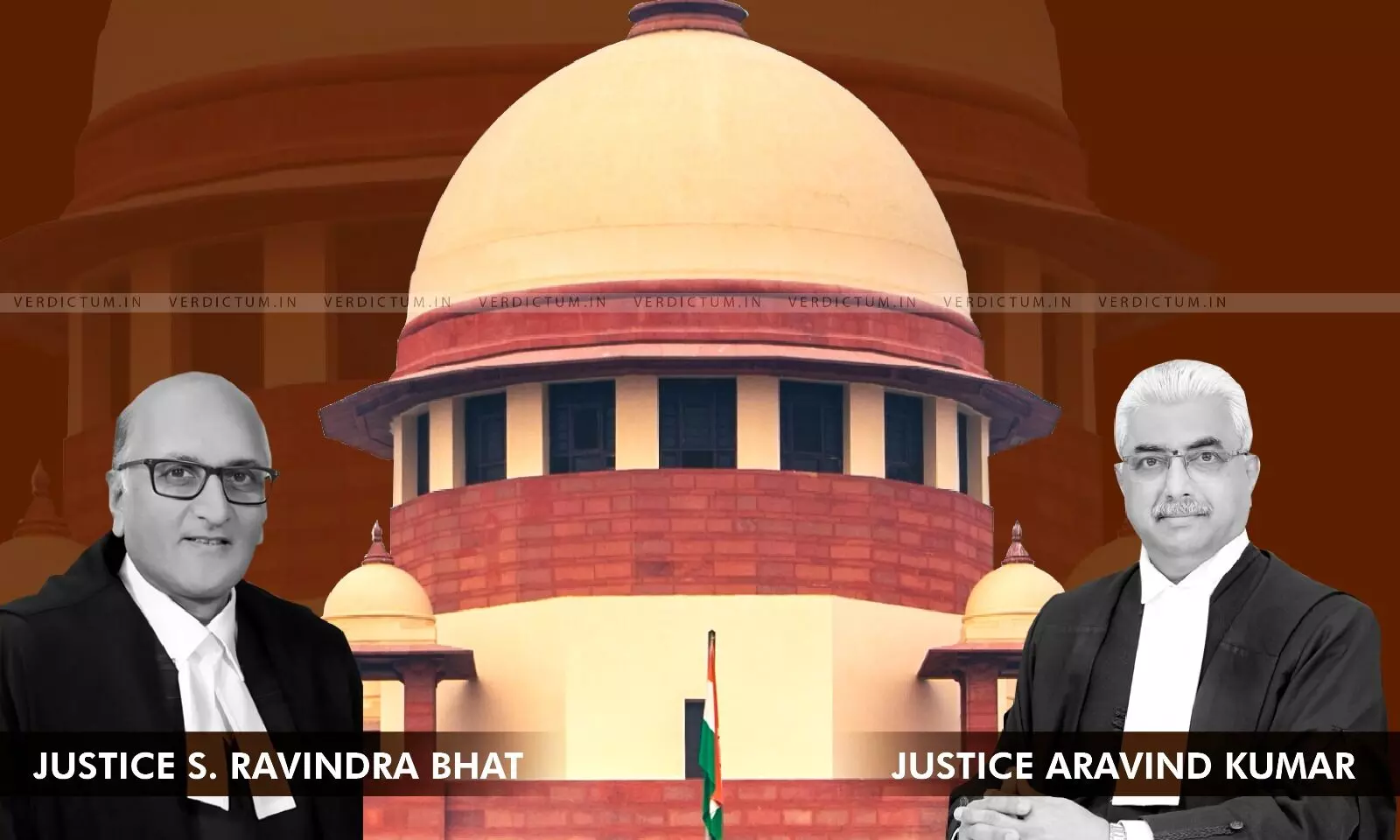
Without Relevant Documents For Age Proof, Ossification Test Necessary To Prove Offence: SC Acquits Man Charged Under POCSO Act
 |
|The Supreme Court set aside an order of Madras High Court and acquitted the Appellant whose conviction was affirmed by the High Court. The Appellant was convicted under Section 366 of the Indian Penal Code (IPC) and Section 6 of the the Protection of Children from Sexual Offences Act (POCSO) Act.
A Two Judge Bench comprising of Justice S. Ravindra Bhat and Justice Aravind Kumar held that “Section 94 (2)(iii) of the JJ Act clearly indicates that the date of birth certificate from the school or matriculation or equivalent certificate by the concerned examination board has to be firstly preferred in the absence of which the birth certificate issued by the Corporation or Municipal Authority or Panchayat and it is only thereafter in the absence of these such documents the age is to be determined through “an ossification test” or “any other latest medical age determination test” conducted on the orders of the concerned authority, i.e. Committee or Board or Court.”
The Court further added that “It is clear from the above narrative that none of the documents produced during the trial answered the description of “the date of birth certificate from the school” or “the matriculation or equivalent certificate” from the concerned examination board or certificate by a corporation, municipal authority or a Panchayat. In these circumstances, it was incumbent for the prosecution to prove through acceptable medical tests/examination that the victim’s age was below 18 years as per Section 94(2)(iii) of the JJ Act.”
AOR E. R. Sumathy appeared for the Appellant while Senior Advocate V. Krishnamurthy appeared for the Respondent.
The Appellant was in a relationship with the victim. The victim complained of stomach ache and was taken to the hospital. While returning, the victim was kidnapped by the appellant and his friends. A complaint under Section 366-A IPC was lodged. Marriage was solemnized between the Appellant and the victim. Upon getting to know about the police complaint, the Appellant left the victim and she returned home.
The victim’s statement was recorded under Section 164 CrPC wherein she said that she went with the Appellant on her own and there was no coercion involved. The trial court held the appellant and others guilty; the Appellant was sentenced inter alia under Section 6 of the POCSO Act to undergo rigorous imprisonment for life. The High Court, by the impugned judgment modified the conviction; the appellant’s conviction under the POCSO Act was confirmed but his sentence of life imprisonment with rigorous imprisonment was reduced to 10 years of rigorous imprisonment. The judgment of the High Court was challenged in the Supreme Court.
The Court after a careful examination of facts and circumstances said that “this court is of the opinion that the prosecution was not able to establish that there was any penetrative sexual assault as a result of coercion or compulsion on the part of the appellant. Having regard to these overall factors, the court is of the opinion that M’s statement under Section 164 of the Cr. PC contained a truthful narration of the events. This, in other words, meant that there was no penetrative sexual assault on her. Therefore, the provisions of the POCSO Act will not be applicable in this case.”
The Court further said that “The charges against him, under Section 6 of the POCSO Act as well as Section 10 of the Prohibition of Child Marriage Act, cannot be sustained; the findings of the courts below, i.e., conviction and sentences imposed are, therefore, set aside.”
The Supreme Court acquitted the Appellant and set aside the order of the Madras High Court
Cause Title: P. Yuvaprakash V. State Rep. By Inspector Of Police
Click here to read/download judgment